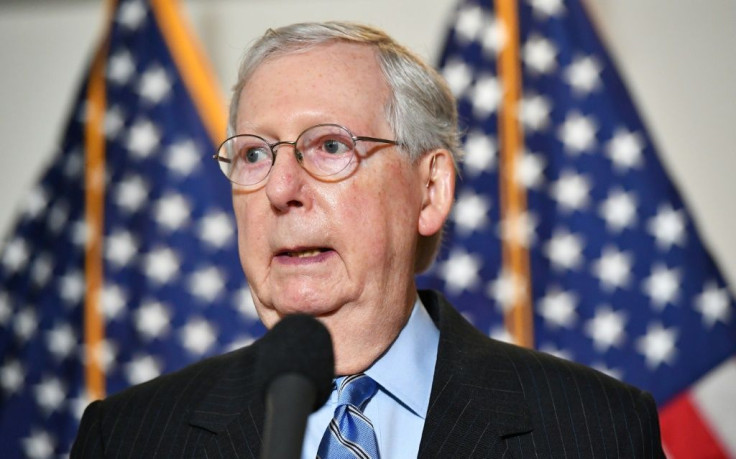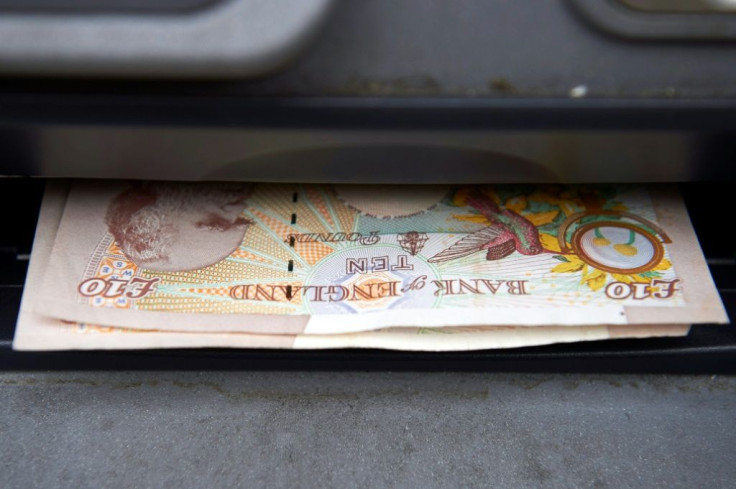Global Stocks Rise Despite Stalemate On US Stimulus
Stock markets rose on both sides of the Atlantic on Wednesday as optimism about an economic recovery outweighed worries that US lawmakers may not, after all, agree to a fresh stimulus deal any time soon.
European markets finished solidly higher, with London outperforming its peers thanks to a weaker pound. Strong German economic data had also propelled European equities higher on Tuesday.
Wall Street followed suit later, with the Nasdaq leading the major indices behind big gains by Apple, Amazon and other tech giants.
Analysts attributed some of the advance to investor relief at former Vice President Joe Biden's selection of Kamala Harris as a running mate in the 2020 presidential election.
Investors prefer California senator Harris to other leading choices, especially Massachusetts senator Elizabeth Warren, a proponent of raising taxes on the wealthy and aggressive changes to rein in Wall Street, analysts said.
Investors are looking ahead to a meeting this week between US and Chinese officials to review their trade pact.
Tensions between the powers have had investors worried, but White House advisor Larry Kudlow said the pact was "fine right now."
He added that Beijing had vowed to stick to its promises on the January trade deal and there was evidence it was increasing purchases.

There was no movement on stimulus talks in Washington as US Treasury Secretary Steven Mnuchin accused Democratic leaders in Congress of playing politics, while House Speaker Nancy Pelosi and Senate Minority Leader Chuck Schumer countered that the Trump administration had refused to budge on the size of the package after Democrats slashed their offer.
Meanwhile, the British pound slipped against the euro, and to a lesser extent the dollar, as Britain's coronavirus-ravaged economy slid into its deepest recession on record.
Britain's economy shrank by a fifth in the second quarter, more than any European neighbor, and following two quarterly contractions in a row was officially in recession.
Losses for the pound were, however, limited by data showing British GDP growth of 8.7 percent in June -- the final month of the second quarter -- as the economy slowly emerged from lockdown.
"The figure for June is key, as we all knew that lockdown measures would have a big impact on the economy but what we still don't know is how quickly the UK will rebound," said AJ Bell analyst Laura Suter, calling the June figures "encouraging".

New York - Dow: UP 1.1 percent at 27,976.84 (close)
New York - S&P 500: UP 1.4 percent at 3,380.35 (close)
New York - Nasdaq: UP 2.1 percent at 11,012.24 (close)
London - FTSE 100: UP 2.0 percent at 6,280.12 (close)
Frankfurt - DAX 30: UP 0.9 percent at 13,058.63 (close)
Paris - CAC 40: UP 0.9 percent at 5,073.31 (close)
EURO STOXX 50: UP 0.9 percent at 3,363.18 (close)
Tokyo: Nikkei 225: UP 0.4 percent at 22,843.96 (close)
Hong Kong: Hang Seng: UP 1.4 percent at 25,244.02 (close)
Shanghai: Composite: DOWN 0.6 percent at 3,319.27 (close)
Euro/dollar: UP at $1.1791 from $1.1740 at 2100 GMT
Dollar/yen: UP at 106.86 yen from 106.49
Pound/dollar: DOWN at $1.3026 from $1.3048
Euro/pound: UP at 90.48 pence from 89.98
West Texas Intermediate: UP 2.5 percent at $42.67 per barrel
Brent North Sea crude: UP 2.1 percent at $45.43 per barrel





















